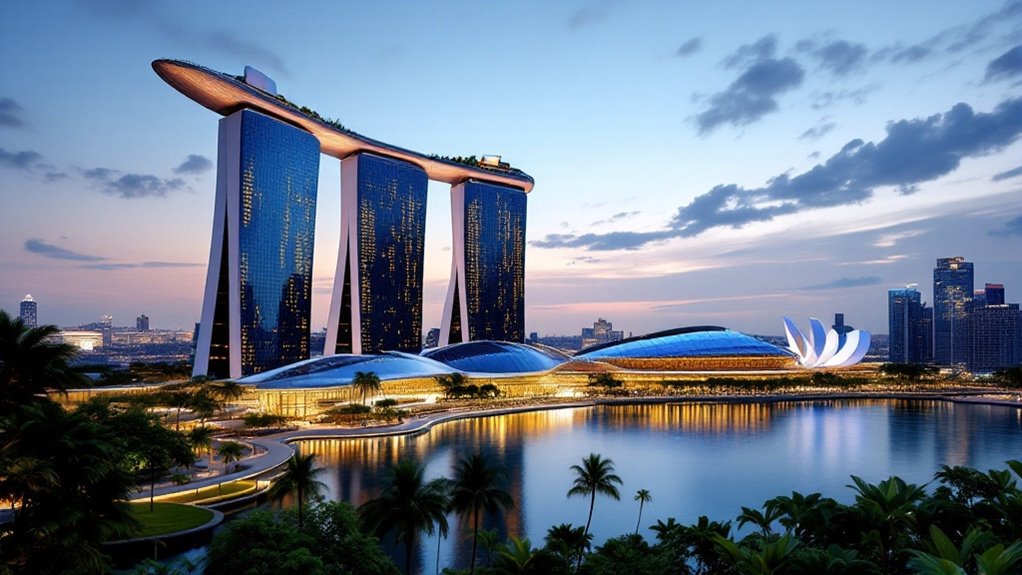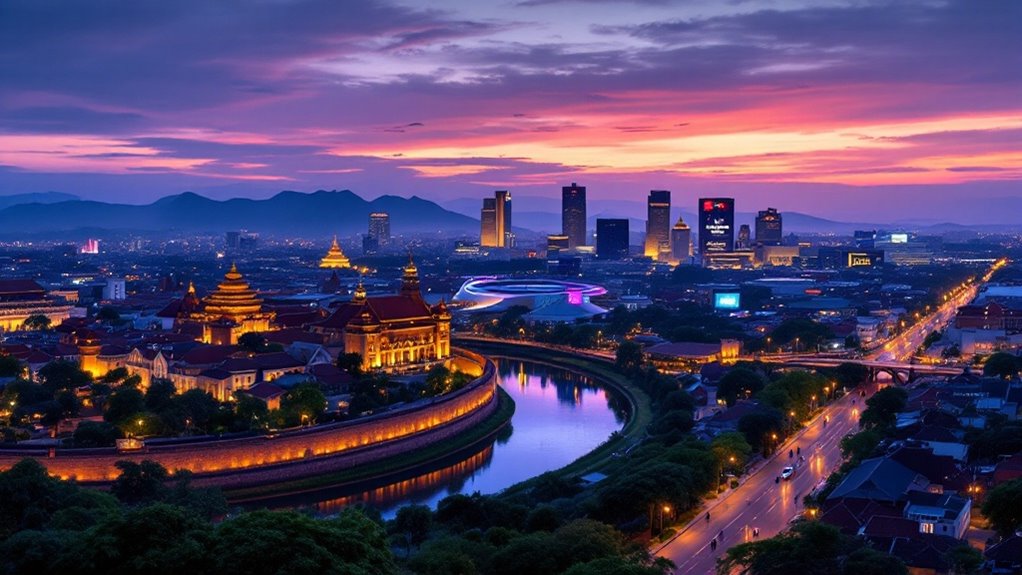Thailand’s hotel sector is increasingly concerned as international tourist numbers continue to fall in 2025, with hotel occupancy dropping to 63% in April and a sustained year-on-year decline projected. The sharp drop in Chinese arrivals, driven by safety concerns and competition from Japan and Vietnam, has intensified worries among hoteliers about long-term business viability. Despite increased tourism revenue, ongoing safety issues and shifting traveler preferences present serious challenges for recovery. Further examination will reveal how these trends impact future strategies.
Although Thailand has long been recognized as one of Southeast Asia’s premier tourist destinations, the nation is currently experiencing a notable downturn in its tourism sector. Data from the first four months of 2025 reveals that foreign tourist arrivals totaled 12.09 million, a slight decrease of 0.26% compared to the same period in 2024.
April 2025 saw a sharper monthly drop, with international arrivals falling 7.6% year-on-year to 2.54 million visitors. Despite these lower numbers, tourism revenue paradoxically increased by 5.24% over the previous year, reaching 576.85 billion baht, suggesting that visitors who did come were spending more. Notably, Malaysia surpassed China as the top source of tourists in April 2025, highlighting a shift in tourist demographics that could influence future marketing strategies.
Despite a 7.6% drop in arrivals in April 2025, tourism revenue rose 5.24%, as spending per visitor increased.
This downturn is particularly impactful on Thailand’s hotel industry, where occupancy rates reflect the broader trend. In April, average hotel occupancy fell to 63%, indicating a significant reduction in bookings. Hotel occupancy rates reflect broader trends in tourism decline, with many hoteliers expressing concern about their future business viability. Hoteliers now forecast a continued year-on-year decline in foreign guests throughout the second quarter of 2025.
The situation is exacerbated by a sharp drop in Chinese arrivals, historically a key market, which fell by 25% to 1.64 million between January and May 2025. This reduction is attributed to both safety concerns within Thailand, such as high-profile kidnappings and scams, and greater appeal of competing destinations like Japan and Vietnam.
Safety perceptions have played a major role in the slump, with incidents ranging from the abduction of a Chinese actor to regional bombings and earthquakes undermining Thailand’s image as a secure destination. The government faces mounting pressure to restore confidence, as these events continue to affect tourist sentiment.
In response, authorities are preparing stimulus plans and revising marketing strategies, shifting focus towards long-haul markets with higher spending potential. At the same time, the tourism authority has revised its arrival targets, lowering projections from 37.46 million to below 37 million foreign tourists for 2025.
The cumulative decline in arrivals, especially from key Asian markets, and the uncertain recovery timeline make this period particularly challenging for Thailand’s hotel sector, which relies heavily on sustained international demand to maintain profitability and growth.








